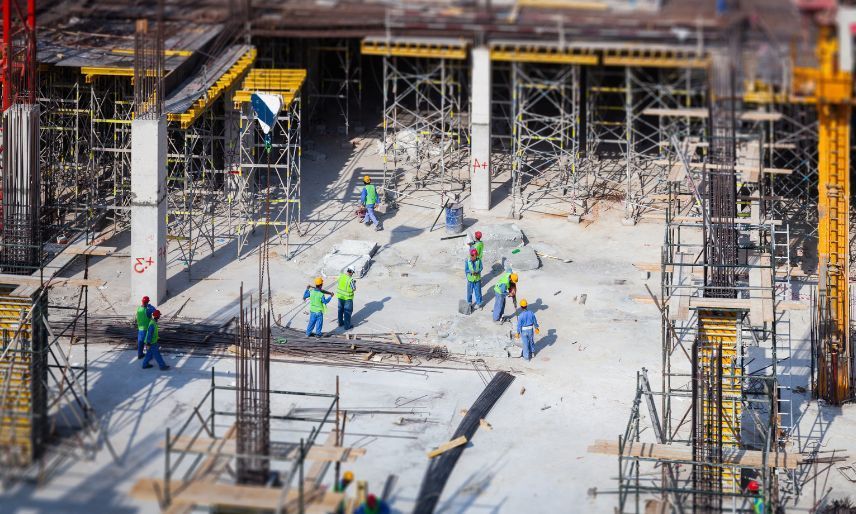In the competitive world of construction, winning bids is about far more than just offering the lowest price. While cost remains a critical factor, the contractors who consistently secure projects understand that success hinges on a complex blend of strategic planning, reputation, resource management, and market insight. According to recent research, a significant number of companies struggle with low bid success rates—70 companies reported winning less than 20% of their bids—highlighting how challenging it can be to stand out in this crowded field. Bidding Strategy in Construction Public Procurement: A Contractor’s Perspective sheds light on these dynamics, emphasizing that winning bids consistently requires a multifaceted approach.
Understanding why some contractors always win bids involves exploring the key factors that influence bidding decisions, the importance of building a strong industry reputation, and how leveraging digital marketing and data can create a competitive edge. This article dives into these elements to reveal what separates the top-performing contractors from the rest.
Beyond Price: The Critical Factors Influencing Bidding Success
Price is often the first thing clients look at, but it is rarely the sole deciding factor. Contractors who consistently win bids know that several other elements weigh heavily in the decision-making process. A comprehensive study focusing on contractors in Saudi Arabia identified six pivotal factors that influence bidding decisions: size of the job, type of the job, company’s strength in the industry, designer/design quality, rate of return, and project cash flow.
These factors highlight that contractors must evaluate not only the financial viability of a project but also how well it aligns with their capabilities and strategic goals. For instance, a company with strong industry standing and a proven track record in similar projects will naturally have an advantage over less-established competitors, even if their bid is slightly higher.
Moreover, the quality of design and the potential for a healthy rate of return can sway client decisions. Contractors who understand how to balance these variables and present a compelling case for their bid tend to outperform those who focus narrowly on price alone. The Factors Affecting Contractors’ Bidding Decisions for Construction Projects in Saudi Arabia study offers valuable insights into this nuanced decision-making process.
Material Availability, Labor Productivity, and Profitability
Another layer influencing bid success is operational efficiency. Research shows that material availability and labor productivity are among the most significant factors affecting contractors' success rates in competitive bidding. If a contractor can demonstrate reliable supply chains and efficient workforce management, clients gain confidence in the contractor’s ability to deliver on time and within budget.
Profitability also plays a crucial role. Contractors who can optimize their profit margins without compromising quality or timelines are more likely to sustain their business and invest in future projects. This balance is a key differentiator for contractors who win bids consistently, as highlighted in Factors Influencing Success Rate of Contractors.
In addition to these operational metrics, the ability to foster strong relationships with suppliers and subcontractors can significantly enhance a contractor’s bidding position. Establishing trust and reliability in these partnerships not only ensures timely delivery of materials but also allows for better negotiation terms, which can lead to cost savings. Furthermore, contractors who engage in proactive communication with clients throughout the bidding process can address concerns and adapt their proposals to better meet client expectations, showcasing their commitment to collaboration and transparency.
Lastly, the integration of technology in project management and bidding processes cannot be overlooked. Contractors who utilize advanced software for project estimation, scheduling, and resource allocation can provide more accurate bids and demonstrate a higher level of professionalism. This technological edge can serve as a compelling selling point, particularly in a market that increasingly values innovation and efficiency. By leveraging these tools, contractors not only enhance their operational capabilities but also position themselves as forward-thinking leaders in the construction industry.
Building a Reputation That Wins Bids
Reputation is a powerful currency in the construction industry. A consistently high bid success rate not only reflects a contractor’s ability to deliver quality work but also enhances their standing among clients and peers. This reputation can become a self-reinforcing asset, making it easier to win future bids and negotiate favorable terms. Contractors who understand the importance of reputation often invest time in marketing their successes and gathering testimonials, which can serve as compelling evidence of their capabilities when bidding for new projects.
Industry experts emphasize that a strong reputation signals reliability, professionalism, and a commitment to meeting client expectations. Contractors who invest in building and maintaining this reputation often see tangible benefits, including increased trust from clients and repeat business. According to What does Bid Success Rate Report mean in Construction?, a high bid success rate is a clear indicator of these qualities. Additionally, satisfied clients are more likely to refer contractors to others, creating a ripple effect that can significantly expand a contractor’s network and opportunities for future projects.
Moreover, reputation is not built overnight. It requires consistent delivery of quality projects, transparent communication, and effective problem-solving. Contractors who prioritize these aspects tend to develop long-term relationships with clients, which can be a decisive factor during the bidding process. Engaging in community outreach and participating in industry events can also bolster a contractor's visibility and reputation, allowing them to showcase their expertise and commitment to the field.
Leveraging Industry Strength and Design Quality
Closely tied to reputation is a company’s perceived strength in the industry and the quality of its design work. Contractors who collaborate with reputable designers or have in-house design expertise can offer clients added value beyond construction execution. This capability often translates into better project outcomes and higher client satisfaction. In an increasingly competitive market, the ability to provide innovative design solutions can set a contractor apart, making them a preferred choice for clients looking for unique and effective approaches to their projects.
By showcasing their strengths and design quality, contractors differentiate themselves from competitors who may offer lower prices but lack the same level of expertise or innovation. This strategic positioning is essential for winning bids on complex or high-profile projects. Furthermore, contractors who embrace sustainable practices and cutting-edge technology in their designs are not only appealing to environmentally conscious clients but also aligning themselves with industry trends that prioritize efficiency and sustainability. This forward-thinking approach can further enhance their reputation and bid success rate, as clients increasingly seek partners who are committed to responsible construction practices.
Data-Driven Bidding and Digital Marketing: The New Frontier
The construction industry is undergoing a digital transformation, and contractors who embrace data-driven bidding strategies and digital marketing are gaining a significant advantage. With over 3.9 million companies in the U.S. alone, the competition is fierce, and standing out requires more than traditional methods.
Digital marketing budgets in the construction sector have surged, becoming a substantial share of the more than $10 billion spent annually on advertising. Contractors who invest wisely in digital channels can increase their visibility, attract more qualified leads, and ultimately improve their bid success rates. The UPDATED: U.S Construction & Contractor Market Report 2025 highlights this growing trend and its impact on contractor competitiveness.
Tracking the Right Metrics for Better Win Rates
Beyond marketing, tracking the right business metrics is crucial for improving bid success. Government contractors, for example, who focus on specific metrics related to bidding and pipeline management achieve 30% higher win rates and 75% better pipeline efficiency compared to those relying on generic business metrics. This data-driven approach allows contractors to identify strengths, address weaknesses, and optimize their bidding strategies.
Metrics such as bid success rate, pipeline health, and response times provide actionable insights that can transform how contractors approach each opportunity. By integrating these metrics into their workflows, contractors can make informed decisions and allocate resources more effectively, increasing their chances of winning bids. The Marketing Metrics for Government Contractors: 2025 Research Report provides an in-depth look at these benefits.
Moreover, the rise of advanced analytics tools has enabled contractors to harness big data to predict market trends and customer preferences. By analyzing historical data and current market conditions, contractors can tailor their bids to meet the specific needs of clients, thereby enhancing their appeal. This predictive capability not only streamlines the bidding process but also fosters a deeper understanding of client expectations, which is essential in a crowded marketplace.
Additionally, social media platforms and online review sites have become pivotal in shaping public perception and influencing bidding outcomes. Contractors who actively engage with their audience through these channels can build trust and credibility, which are vital in securing contracts. By sharing success stories, showcasing completed projects, and responding to client inquiries promptly, contractors can create a robust online presence that resonates with potential clients and sets them apart from competitors.
Adapting to Market Trends: Increased Bid Activity and Bid Management
Market dynamics also influence bidding success. Recent statistics reveal that 57% of businesses expect to respond to more Requests for Proposals (RFPs), indicating a growing willingness to engage in competitive bidding. This increased activity means contractors must be more strategic and efficient in managing their bids to avoid burnout and maximize success. As the landscape evolves, understanding the nuances of different industries and sectors becomes crucial. For instance, sectors like construction, IT, and healthcare may have unique requirements and expectations that bidders must navigate, making industry-specific knowledge a valuable asset.
Bid management tools and processes have become essential for handling this volume effectively. Enterprise organizations lead the way, with 67% utilizing bid management systems, followed by small and midsize enterprises at 58%. These tools help streamline bid preparation, ensure compliance, and improve collaboration across teams, all of which contribute to higher win rates. Moreover, the integration of artificial intelligence and machine learning into these systems is revolutionizing how bids are prepared. By analyzing past bid data, these technologies can identify patterns and suggest optimal strategies, allowing contractors to refine their approaches and increase their chances of success.
Contractors who adopt bid management technologies and best practices position themselves to respond quickly and accurately to opportunities, a critical advantage in a competitive market. The Bid Management Statistics 2025 – Everything You Need to Know report offers valuable insights into these trends. Additionally, staying updated on market shifts and client preferences can help contractors anticipate changes in demand and adjust their bidding strategies accordingly, ensuring they remain relevant and competitive.
Efficiency and Focus: Keys to Winning More Bids
With more bids to manage, efficiency becomes paramount. Contractors who can prioritize high-potential projects, tailor their proposals to client needs, and maintain quality control throughout the bidding process are more likely to succeed. This focus not only improves win rates but also enhances overall business performance. Implementing a robust feedback loop where teams can learn from both successful and unsuccessful bids can further refine their approach, fostering a culture of continuous improvement and adaptation.
In essence, winning bids consistently is about working smarter, not just harder. By leveraging technology, data, and strategic insights, contractors can navigate the complexities of the bidding landscape and secure more projects without sacrificing quality or profitability. Furthermore, cultivating relationships with potential clients and understanding their pain points can lead to more tailored proposals that resonate deeply, thus increasing the likelihood of winning contracts. Networking events, industry conferences, and online forums can serve as excellent platforms for building these connections and gaining insights into client expectations and industry trends.
Conclusion: Winning Bids Requires a Holistic Approach
Contractors who consistently win bids understand that success is not just about offering the lowest price. It involves a holistic approach that includes evaluating project fit, building a strong reputation, leveraging design and industry strengths, embracing digital marketing, and using data-driven strategies to optimize bidding processes.
As the construction industry continues to evolve, those who adapt by focusing on these critical factors will maintain a competitive edge. With over 70 companies reporting success rates below 20%, there is a clear opportunity for contractors to improve their approach and increase their chances of winning bids. By prioritizing quality, efficiency, and strategic insight, contractors can transform bid challenges into growth opportunities and long-term success.
For contractors aiming to boost their bid success rates, understanding these multifaceted elements and integrating them into their business practices is essential. The future belongs to those who recognize that winning bids is as much about value and capability as it is about price.




